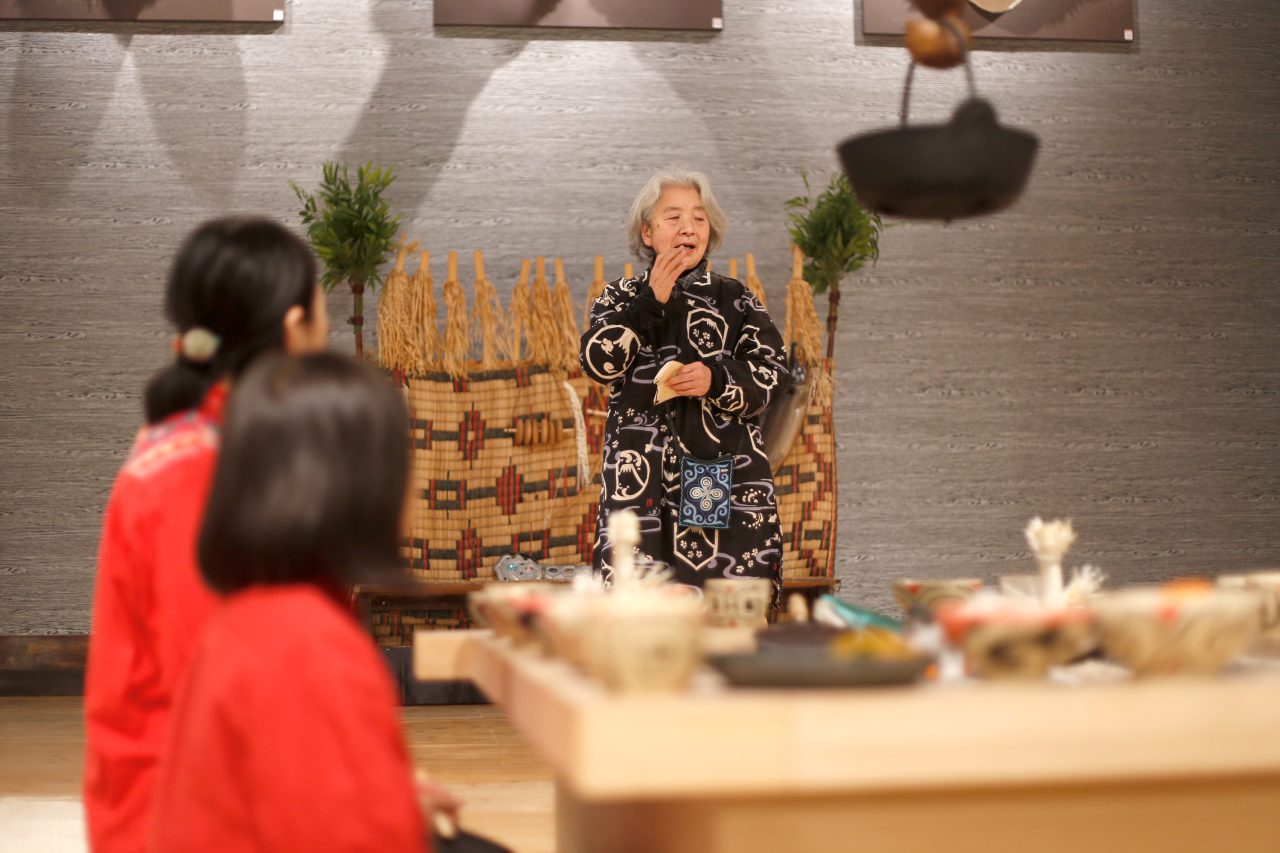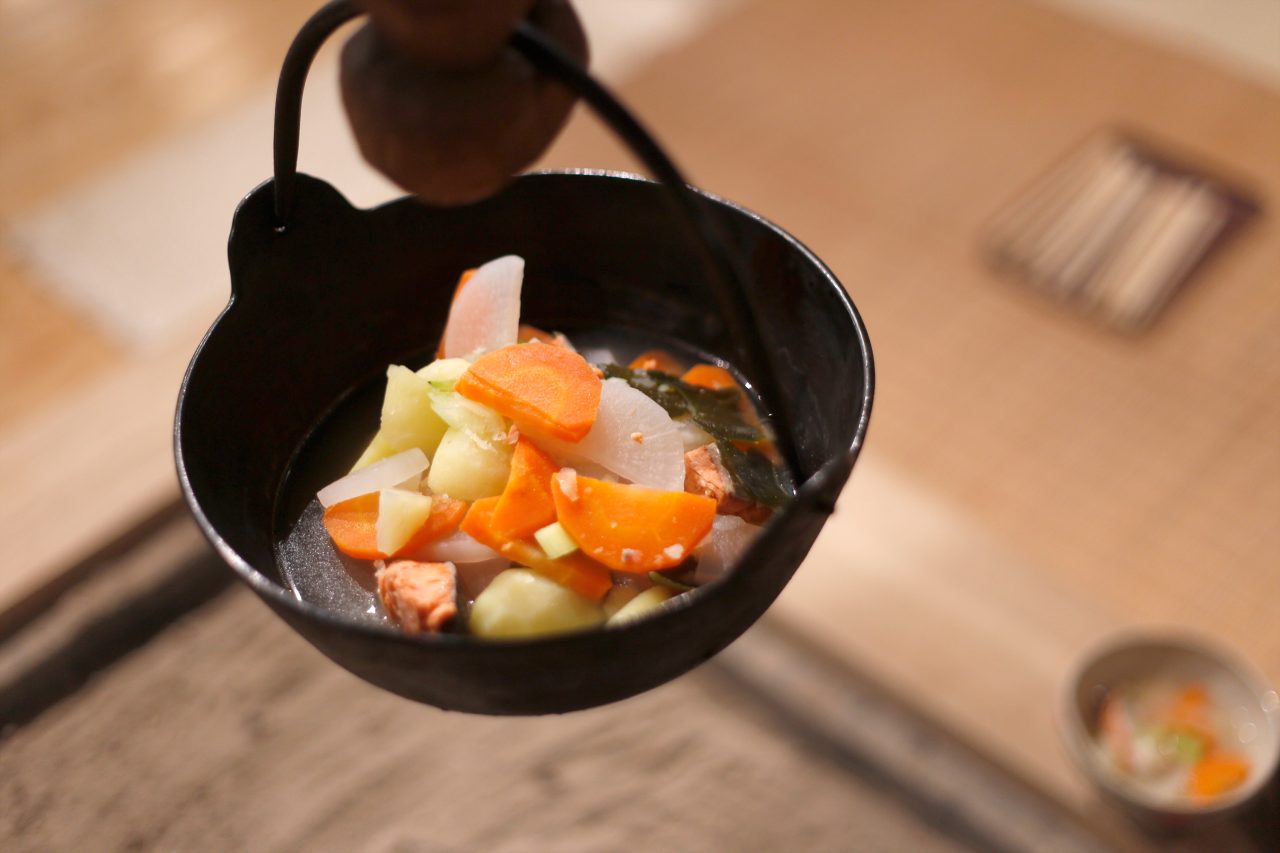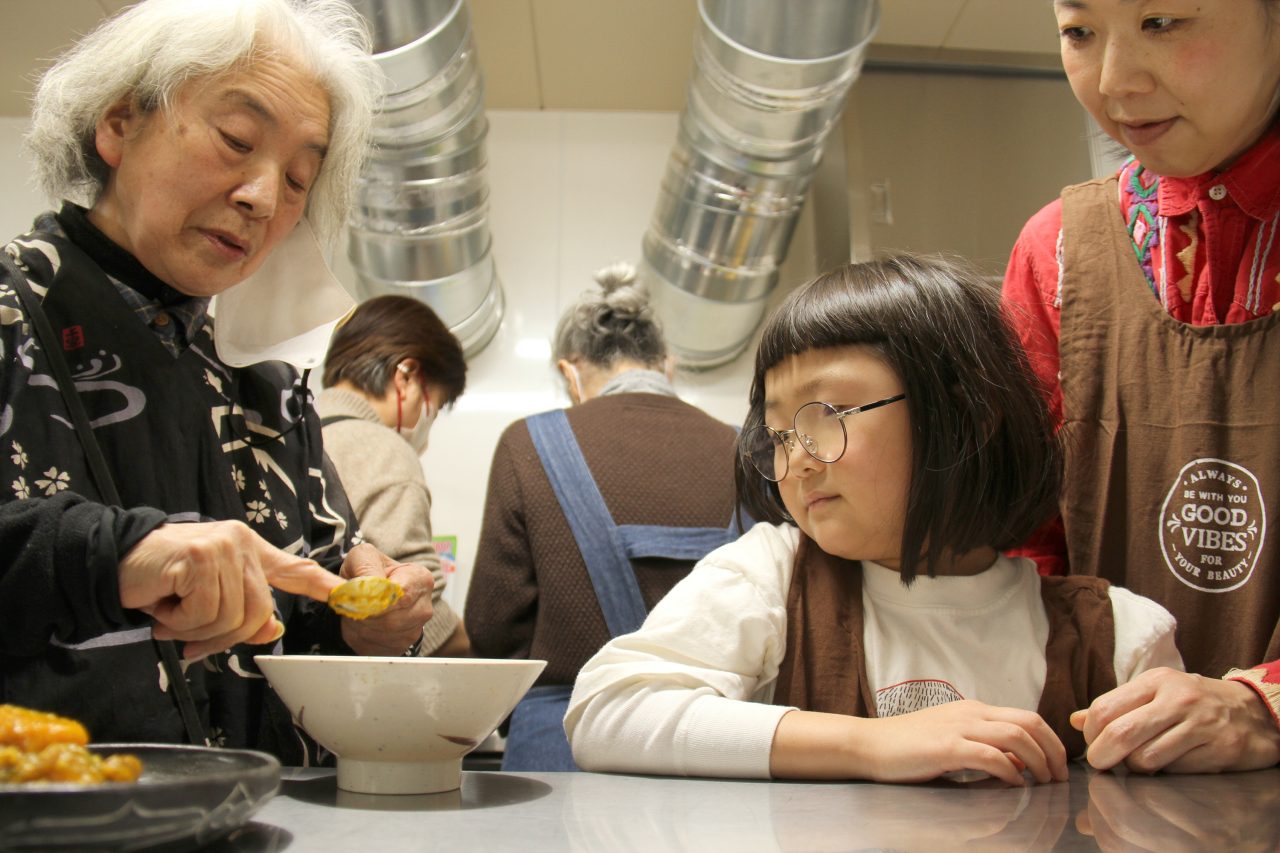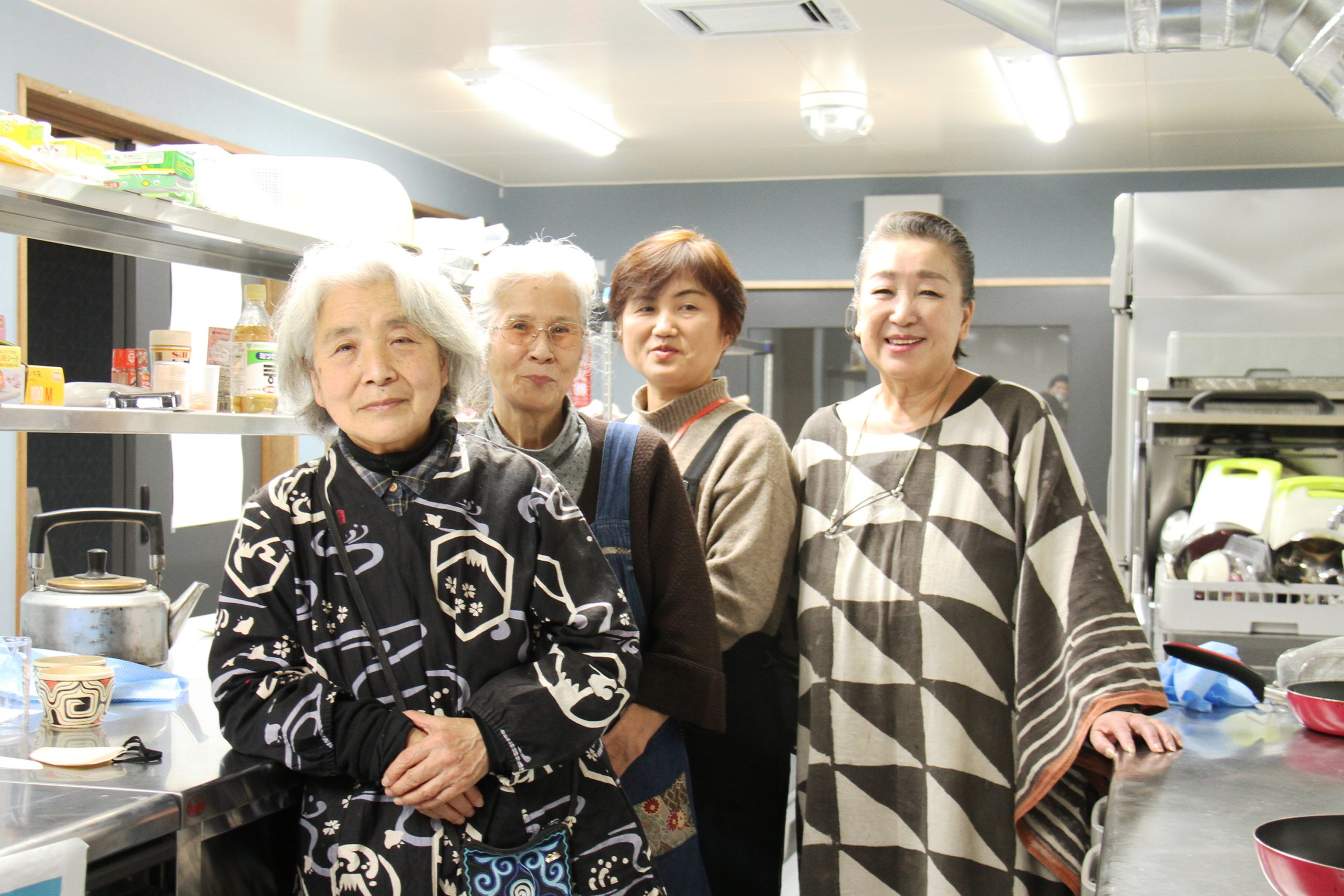Kayoko Nishida, Misako Akibe, Yoshiko Yawata, Akiko Saito, et al.
Four ladies who manage handicraft shops in the Lake Akan Ainu Kotan. All born in Honshu, they moved to Lake Akan where they have been living for over 30 years. From 2023, they have also been serving as guides for the “Cooking Time” tour program while running their own shops.

Taking on a new challenge together with long-time friends
The Anytime, Ainutime! tours were mostly full-fledged activity programs aimed at adults. But the new “Cooking Time” Ainu Cuisine Cooking Lesson lets both adults and children experience and enjoy Ainu culture, with these four ladies serving as the main guides.
In the cooking lesson, participants get to make typical Ainu dishes that are served during special events or gatherings. In order to let both children and adults experience the fun of cooking, the guides chose dishes that involve simple steps such as slicing, mixing, and kneading.
Besides Kayoko Nishida who teaches the Ainu embroidery-making program, the other guides for the cooking lesson are all beginners when it comes to teaching something to tourists and visitors. But Misako Akibe finds it fun, admitting that she likes talking with various customers in her own shop. She decided to be a guide in addition to her shop owner duties because she wanted more people to learn about Ainu culture.

Teaching with a hope that the guests will one day remember what they felt
Kayoko recalls how her elders used to teach her about which plants are edible while hiking in the mountains. She learned about sikerpe (Amur cork tree berries), uras (bamboo grass), mushrooms, and other wild vegetables. It was part of the Ainu way of life of finding and taking the blessings that nature provides across the different seasons. She also learned about how not to waste anything she receives from the kamuy. When she ate fish, she would eat every part of it, roasting the skin and bones to make them soft enough to consume.
What Kayoko and the other guides want guests to learn in the “Cooking Time” program is the preciousness of receiving the blessings of nature as food, and the importance of caring for nature. We should take only what we need and not waste anything. These are some of the Ainu philosophies that they wish to convey through the cooking lesson.
In particular, they hope to connect with the hearts and minds of children who will lead the next generation. The children may not understand it right there and then, but it is their wish that one day, they will realize the lesson they are teaching. Perhaps when they see bamboo grass in the forest, they will know not to mindlessly pluck or trample on it. They hope to make this new venture into an opportunity to nurture a respect for nature.



